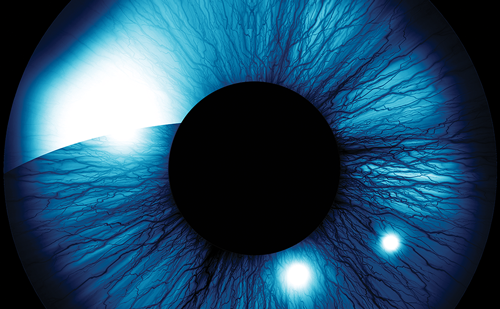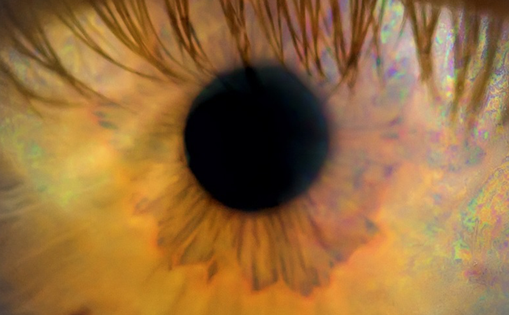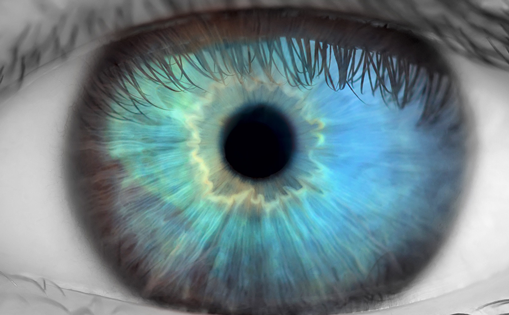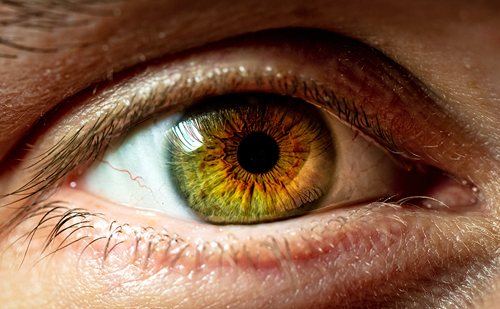



AI in oculomics shows potential for non-invasive cardiovascular risk assessment
In a new study published in the Asia-Pacific Journal of Ophthalmology, researchers explored the use of artificial intelligence (AI) in oculomics for assessing cardiovascular risk factors through retinal imaging, specifically focusing on predicting HbA1c levels.
Driving collaboration to address future challenges in ophthalmology
In this interview, Dr SriniVas Sadda, Director of Artificial Intelligence & Imaging Research at the Doheny Eye Institute, and Professor of Ophthalmology at the University of California – Los Angeles (UCLA) Geffen School of Medicine, and President of ARVO (2024-2025), discusses the pressing challenges and emerging opportunities in treating retinal diseases.
AR-15512, a Novel Topical Drug Candidate for Dry Eye Disease
Thermoreceptors on the ocular surface play a critical role in the development of dry eye disease (DED). An experimental eye drop called AR-15512, which activates cooling receptors, has been found to provide fast and continuous relief from dry eye symptoms, with minimal side effects.
Noninfectious Uveitis: A Review of Ophthalmic Management and Clinical Pearls
Noninfectious uveitis (NIU) encompasses a diverse group of inflammatory eye disorders that pose significant risks to vision if not treated appropriately. The epidemiology of NIU varies globally, with higher prevalence noted in specific ethnic groups, such as African American, Hispanic and Caucasian populations, depending on the location of inflammation.




touchOPHTHALMOLOGY
Education, Conference Coverage and Articles

Want to be featured in touchReviews in Ophthalmology?
Share your knowledge, influence clinical practices and enhance patient care in Ophthalmology today!
- Peer-reviewed, free-to-access
- Accepting reviews, research and editorials
- No article processing fees
- Digital features and plain language summaries
- Multichannel content distribution for maximum visibility
Editorial Board
Introducing the Editorial Board of touchREVIEWS in Ophthalmology, who support our mission to advance medical knowledge and practice by ensuring the integrity, relevance, and impact of the content we publish. Together, we strive to foster a vibrant academic community and contribute to the continuous improvement of healthcare worldwide.

Jennifer Loh
Editor-in-Chief
Cataract

Biography
Jennifer Loh, MD is a board-certified ophthalmologist practising in Miami, Florida with a focus on cataract-refractive surgery and dry eye disease. She is founder and medical director of her practice, Loh Ophthalmology Associates, which she started in 2016. Dr Loh also spends her time as a clinical and surgical attending for the Larkin Hospital Ophthalmology Residency program. She is a graduate of Indiana University School of Medicine, where she completed both medical school and ophthalmology residency. On a personal note, Dr Loh enjoys skiing and travelling the world with her husband and son.

Francesco Bandello
Editorial Board member
Retina

Biography
Francesco Bandello is Professor and Chairman at the Department of Ophthalmology University Vita-Salute, Scientific Institute San Raffaele, Milan, Italy. He is Past President Academic Dean of “Corso di Laurea Specialistica/Magistrale in Medicina e Chirurgia” at the same University. Professor Bandello is President of the Association of Italian University Professors of Ophthalmology (CONPROSO), President of ESASO Foundation (European School for Advanced Studies in Ophthalmology), President of Academia Ophthalmologica Europea, Vice President of EuroLam and Past President of EURETINA.
Prof. Bandello is Editor-in Chief of the European Journal of Ophthalmology, Active Member of The American Ophthalmological Society (AOS), Board Member of the Commission of prevention of blindness and low vision (Italian Ministry of Health), Executive Board Member of SISO (Società Italiana Scienze Oftalmologiche), Member of the Academia Ophthalmologica Internationalis and Member of the “Academia Nazionale di Medicina”.
Prof. Bandello is former Member of the Board of Directors of Club Jules Gonin and former Executive Committee Member of the Macula Society.
Prof. Bandello is co-author of 14 books and he served as a peer reviewer for grant applications for the NEI. He has authored or co-authored 1.087 Pub-Med articles and he served as trained Principal Investigator in several clinical trials performed following ICH/GCP and mainly concerning retinal diseases.

David Chang
Editorial Board member
Anterior segment

Biography
David F Chang, MD is a Summa Cum Laude graduate of Harvard College and Harvard Medical School. He completed his ophthalmology residency at the University of California, San Francisco where he is now a clinical professor Dr Chang is clinical professor at the University of California, San Francisco and in private practice in Los Altos, CA. He previously chaired the ASCRS Cataract Clinical Committee and served on the ASCRS executive committee from 2009-2023. Dr Chang was the ASCRS president from 2012-2013, EyeWorld Chief Medical Editor from 2011-2015, and ASCRS Foundation chair from 2015-2023. With a strong interest in global cataract blindness, he received the 2019 AAO Humanitarian Service Award and the 2020 Aravind Venkataswamy Award. Dr Chang is co-founder and the advisory board chair of EyeSustain, a global consortium of eye societies advancing sustainability in ophthalmology. He is a past chair of the AAO Cataract Preferred Practice Pattern Panel and the AAO Annual Meeting Program Committee.
Dr Chang has been honored by the following international societies: AAO (Kelman Lecture), ASCRS (Binkhorst Medal), ESCRS (Ridley Medal), APACRS (Lim Medal), United Kingdom and Ireland Society of Cataract & Refractive Surgery (Rayner Medal), Canadian Society of Cataract and Refractive Surgery (Award of Excellence/Stein Lecture), All India Ophthalmology Society (President’s Lecture), Italian Ophthalmological Society (Strampelli Medal), International Intraocular Implant Club (IIIC Medal), AECOS (Visionary Award), DOC-German Ophthalmic Surgeons (DOC Innovator Lecture), International Society of Refractive Surgery (Presidential Award), RANZCO (Gregg Medal), APAO (Jose Rizal International Medal), MEACO (El-Maghraby International Award), and the ICO (T. Krwawicz Gold Medal).

Marjan Farid
Editorial Board member
Ocular Surface Disease

Biography
Dr Marjan Farid is Professor of Clinical Ophthalmology and Director of Cornea, Refractive & Cataract Surgery at the Gavin Herbert Eye Institute, University of California-Irvine. She graduated Summa Cum Laude from UCLA with a degree in Biology and earned her medical degree at UC San Diego. Her clinical practice is divided between patient care, teaching and research. Her research interests focus on corneal surgery, specifically the use of the femtosecond laser for corneal transplantation. She is also the founder of the Severe Ocular Surface Disease Center at UCI and is a centre of excellence as part of the Holland Foundation for Sight Restoration. She performs Limbal Stem Cell transplants as well as artificial corneal transplantation for the treatment of patients with severe ocular surface disease. She currently serves as the Chair of the Cornea Clinical Committee of ASCRS. Her work is published in numerous peer-reviewed journals. She has authored multiple textbook chapters and travels extensively to present her work at national and international meetings.

 touchOPHTHALMOLOGY
touchOPHTHALMOLOGY
Register Now!
Explore the latest in medical education and stay current in your field. Create a free account to track your learning.
- Save your progress for video
- Keep track of your CME credits
- Add personalised learning notes
- Receive updates from course leaders and faculty
- Be the first to hear about new and exciting interactive learning opportunities
This Functionality is for
Members Only
Explore the latest in medical education and stay current in your field. Create a free account to track your learning.























